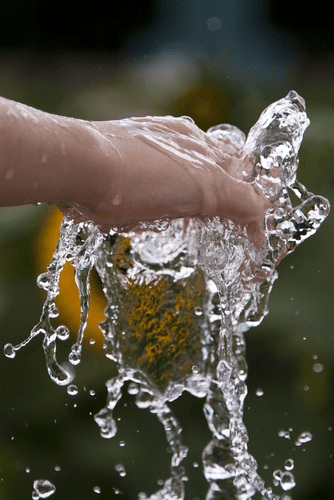Societies that prioritize individualism and materialism may foster a higher prevalence of narcissistic traits. Similarly, cultural norms surrounding alcohol and its consumption can influence an individual’s likelihood of developing alcoholism. In the realm of psychological and behavioral disorders, the connection between narcissism and alcoholism has been a subject of interest and exploration. Understanding the relationship between these two conditions can shed light on the factors that contribute to their co-occurrence. This section provides an introduction to narcissism and alcoholism, setting the stage for further exploration. The path forward involves fully understanding the risk factors, underlying issues, and side effects of co-occurring NPD and AUD.

From Admission to Recovery – Supporting Your Loved One
- Following up with an outpatient or 12-step program can be incredibly helpful as well.
- Narcissism is characterized by an excessive preoccupation with oneself, a sense of entitlement, a lack of empathy, and a need for admiration.
- Emerging treatments and ongoing studies aim to improve outcomes for individuals with co-occurring narcissism and alcohol use disorder.
- However, beneath their outward appearance of humility, they still prioritize their own needs and desires above others and struggle with empathy and genuine emotional connection.
We offer integrated treatment plans that address both the psychological and physical aspects of addiction and narcissism, helping individuals achieve long-term recovery. Understanding the reinforcing patterns and negative consequences of the narcissism-alcoholism cycle is crucial in developing effective treatment approaches. By addressing both conditions simultaneously, individuals can break free from this destructive cycle and work towards a healthier and more fulfilling life. Narcissistic individuals who misuse alcohol are more likely to be self-destructive.
The Impact of Family Support on Recovery

Understanding the shared risk factors and vulnerabilities between narcissism and alcoholism can help healthcare professionals tailor treatment approaches and interventions. By addressing these underlying factors, individuals with co-occurring narcissism and http://www.glazok.ru/news/30/entry/3619/index.html alcoholism can receive comprehensive care. Narcissism and alcoholism often intertwine, creating a complex and challenging dynamic. Both conditions can significantly impact a person’s relationships, well-being, and overall quality of life. Research indicates that individuals with narcissistic tendencies are more likely to develop alcohol-related problems and engage in excessive drinking behaviors.
- They will con a way to buy alcohol, drink in secret, and find a way to cover their drinking.
- These individuals might also engage in gaslighting, a form of psychological manipulation where they make others question their own perceptions and memories.
- Narcissistic personality disorder (NPD) and alcohol use disorder (AUD) are closely linked and can occur together as a dual diagnosis.
- For instance, they tend to demonstrate a lack of empathy and are prone to anger, irritability, and impulsivity outbursts.
Where to find support if you’re experiencing NPD or AUD
Read more about living with a person who has AUD and managing a relationship with someone who has NPD. The main treatment for NPD is talk therapy, also known as psychotherapy. Further research into the causes of AUD might help experts develop more treatment options. However, research from 2014 tells us that genetics might play a part in whether some people develop NPD. It seems that many people who have NPD might also have AUD, but it’s not clear why. In order to get a diagnosis of AUD, you have to fit certain diagnostic criteria as set out in the Diagnostic and Statistical Manual of Mental Disorders, 5th edition, Text Revision (DSM-5-TR).
Finding Healing in Narcissistic Abuse Support Groups
This is especially true if you have conflicted emotions and are reluctant to speak with others who might judge you or your relationship. Alcohol use disorder is characterized by periods of sobriety and relapse. Even so, with a combination of therapy, support, and persistence, around a third of people with AUD will maintain sobriety for at least a year and sometimes for decades. Medications like Campral, Topamax, and Revia have greatly improved AUD recovery rates. By way of example, a person must meet five of nine possible criteria for NPD to be diagnosed, ranging from grandiosity to a lack of empathy. To find another http://ofru.ru/index.php?view=newsfeed&catid=40%3A2009-04-05-13-41-13&id=35-35&option=com_newsfeeds&Itemid=65 treatment program, browse the top-rated addiction treatment facilities in each state by visiting our homepage, or by viewing the SAMHSA Treatment Services Locator.

Alcoholism Treatment Options

In other words, those https://autonow.net/how-to-choose-car-soil.html who had narcissistic tendencies were more likely to use alcohol and experience problems because of alcohol use. However, NPD includes other traits, such as needing constant praise and special treatment, reacting negatively to criticism, and manipulating others. People with NPD might be unwilling or unable to recognize others’ feelings and needs. When it comes to alcohol addiction and narcissism, there are some uncanny similarities that can leave loved ones confused, frustrated, and emotionally drained. Similarly, people with dual diagnosis can manage their symptoms with appropriate treatment. Although people with AUD may relapse or have treatment setbacks, they can recover from the disorder.
